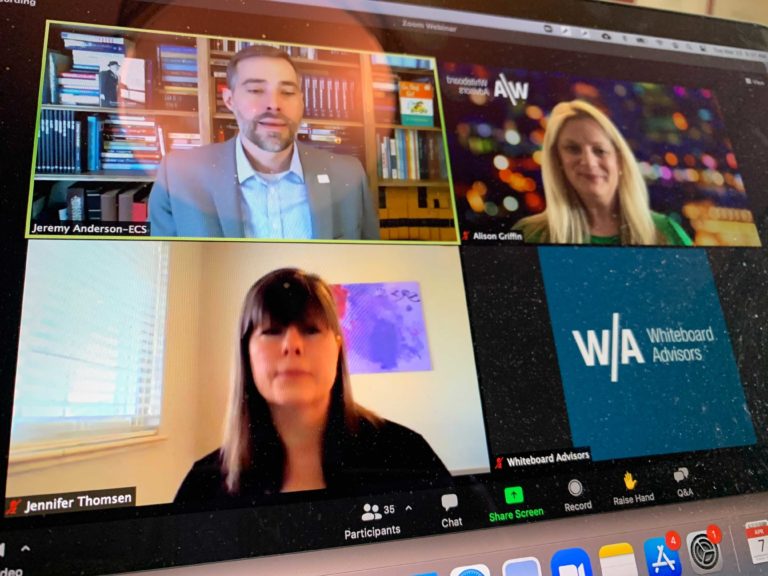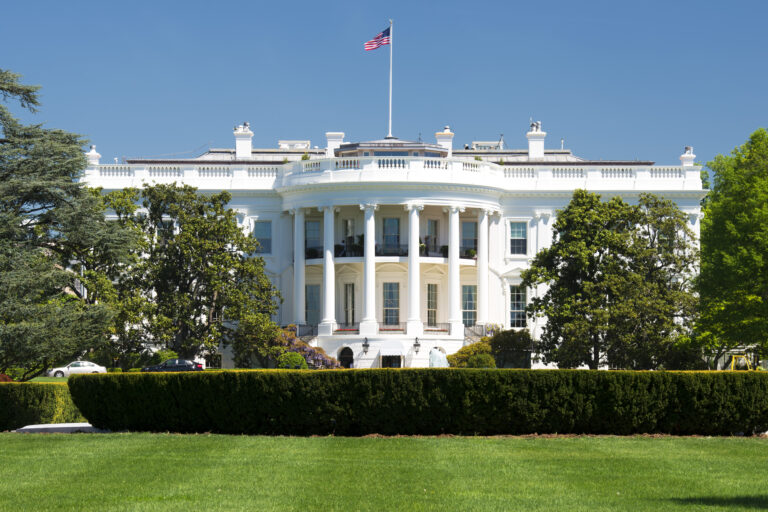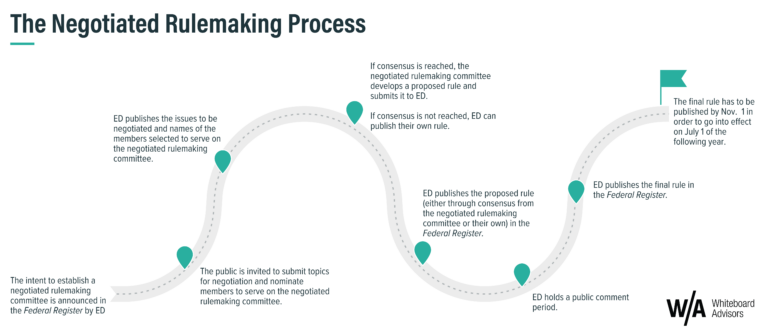Every year, the Education Commission of the States (ECS) summarizes and analyzes education-related trends in their review of governors’ state-of-the-state addresses. This year, in its “Governors’ Top Education Priorities in 2021 State of the State Addresses” report, amidst the challenges of the COVID-19 pandemic, ECS identified six education themes governors elevated as priorities in the year ahead: funding, remote learning, workforce development, reopening schools, student achievement and learning loss, and physical and mental health of students and educators.
On March 23, Whiteboard Advisors hosted a briefing and discussion with Jeremy Anderson, President of ECS and Jennifer Thomsen, Director of Policy. The full recorded session can be accessed here.
Thirty two governors noted that issues of school finance would be a priority in the upcoming session. Some, including Delaware Governor John Carney noted how federal CARES Act funds would be leveraged to address educational inequities across schools and districts. Thirty governors highlighted the need to address remote learning, noting that the pandemic has exacerbated digital divides, but only 22 governors talk about their plans to reopen schools. Nevada Governor Steve Sisolak highlighted how the state plans to supply PPE, vaccines and COVID-19 tests to teachers. Eighteen governors, including New Hampshire Governor Chris Sununu, talked about the impact of the COVID-19 pandemic on the mental health of both students and teachers. Specifically, Governor Sununu called for $3 million to be directed to peer-to-peer buddy programs, school counseling, and communication outreach directly to children. Through their analysis, ECS revealed that as a result of what school leaders have learned over the course of the last year, some states are now permitting schools to diagnose students’ mental health challenges while in school. Many argue that before the onset of the pandemic, attempts to destigmatize mental health issues were incredibly difficult, but the pandemic and the transition to remote learning have impacted how policy makers and policy advocates have addressed the need for schools to be on the front lines of mental health issues of learners..
As the 2020-2021 school year comes to an end, many states are beginning to examine how to address learning loss among students of all ages. In his state-of-the-state address, Alaska Governor Mike Dunleavy proposed that summer camps could improve student’s math and reading skills. Yet, many policy leaders and advocates have continued to raise questions about burnout across teachers, staff, learners and families. Specifically, how will schools staff eight-week summer programs when teachers request time off before the next school year begins? ECS staff confirmed many reports that large numbers of teachers could potentially resign before the start of the 2021-2022 school year, leading to local governments pursuing remote learning to accelerate learning. ECS reaffirmed that solutions require partnerships across the education community, and noted that complex challenges require multiple solutions providers, from policy to tools and systems.
For more information about ECS, visit their website here and sign up for their daily clips, EdNote, here. Read their “Governors’ Top Education Priorities in 2021 State of the State Addresses” report here. Track legislation on your state, on any issue across the education and workforce spectrum here.




